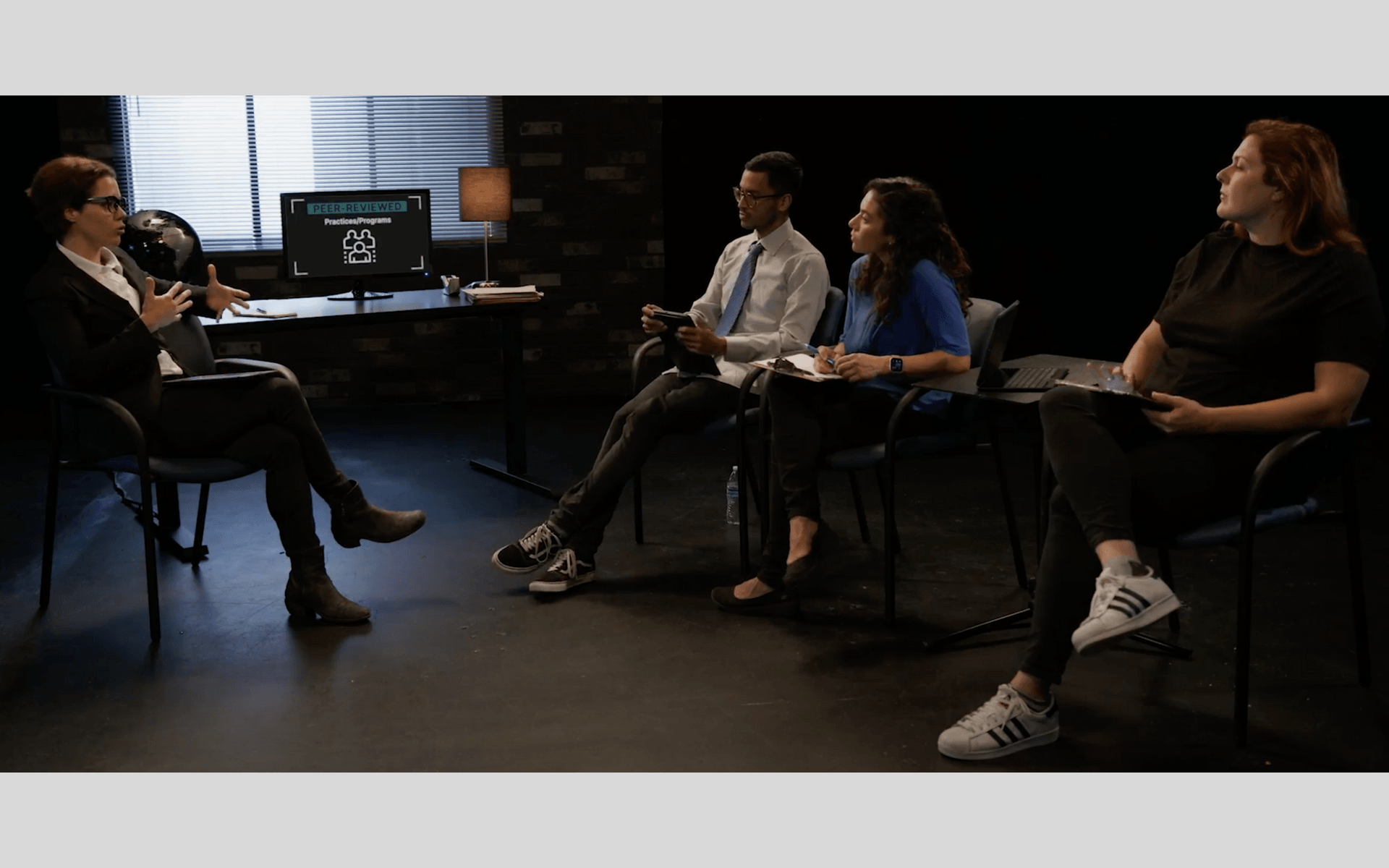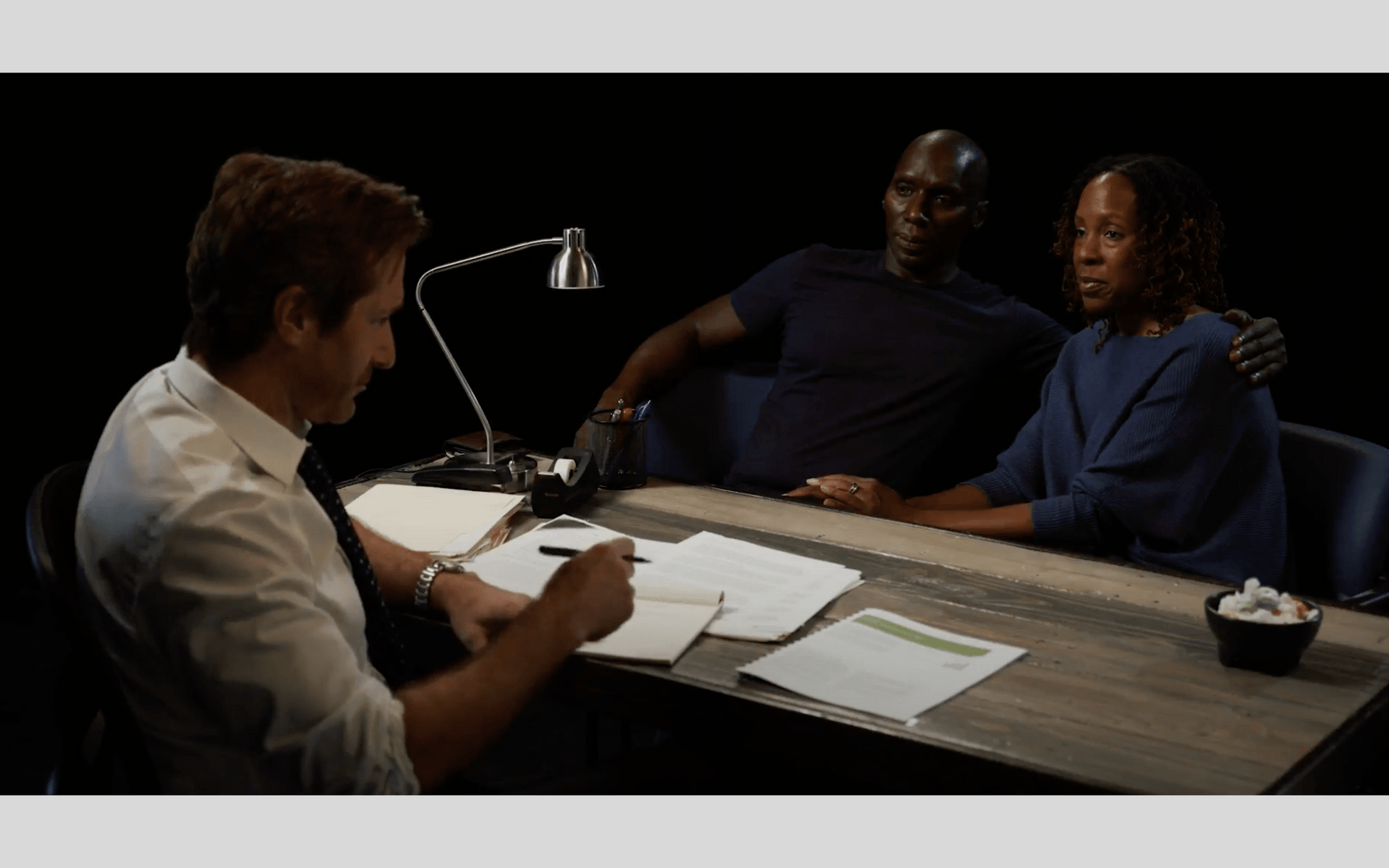Partner Spotlight
Low-Stakes, High-Quality: How Virtual Fieldwork Prepares Syracuse Master of Social Work Students to Practice With Confidence
Written by Molly Forman on Oct 15, 2021
Related content: Graduate Programs, Digital Education

When COVID-19 struck, countless Master of Social Work (MSW) students were left at a standstill. Across the country, many fieldwork placement sites shuttered their doors due to public health concerns—leaving MSW students without a way to fulfill their fieldwork requirements and complete their degree.
As director of field education for Syracuse University’s School of Social Work at Falk College, Tracy Walker clearly recalls this educational crisis. “The quantity of field experiences decreased significantly, so we had students who needed field placement and not enough sites that would even consider taking them,” she explains. “It was the first time that had ever occurred for us. Agencies didn’t feel like they could take on a student and provide a quality experience while trying to learn a new way to engage in their own social work practice amid a pandemic.”
Even prior to COVID-19, consistently providing students with high-quality field experiences proved to be increasingly difficult because of significant and critical changes in agencies, universities, and students.¹ COVID-19 has compounded the issue, leaving schools of social work to reconsider how students will secure the placement hours needed.
A critical component of the social work curriculum, field placement helps students put theory into practice, giving them the real-world experience they need to practice micro and macro skills that are essential in becoming a competent social worker capable of guiding clients through challenging situations. “Social workers are engaging with some of the most vulnerable individuals in our society, like people who are experiencing trauma or health-related issues,” explains Walker. “Our students can’t just cognitively understand the concepts learned in class; they need to know how to make professional judgments and apply these concepts that they’re learning in the classroom so they can be effective and ethical in their practice.”
In other words, discussing concepts in a classroom is one thing, but putting them into practice is another entirely—and students need both experiences to succeed.
“The Stars Completely Aligned”
Determined to provide students with high-quality fieldwork opportunities during the pandemic, Syracuse partnered with 2U to pilot the Virtual Field Experience (VFX): an immersive experiential learning environment for social work students to practice their skills as counselors with live actors who simulate clients.
The VFX helps students get to a place where we feel confident no harm will be done to clients and they will be more effective at their jobs because of the experience.— Tracy Walker, Director of Field Education, Syracuse University’s School of Social Work at Falk College
For Walker, the timing of this collaboration couldn’t have been better. “As a field team, we were already discussing emergent research around the benefits of using simulation in field education and asking, ‘How do we get this technology here at Syracuse University?’” she shares. “Then we got a call from our 2U partners about the pilot VFX program, so the stars completely aligned. We’re definitely early adopters, always looking to innovate and figure out new ways to engage our students, so we were really excited about the opportunity.”
A Low-Stakes, High-Impact Learning Environment
Beyond filling a timely need during COVID-19, the VFX has become a staple of Syracuse’s MSW program—equipping students with valuable real-world experience and building confidence around client interactions. The VFX also makes it possible for more social workers to train and serve in their hometowns by alleviating the cost or burden of traveling to a placement site.
For Walker, one of the biggest benefits of the VFX has been providing students with a low-stakes platform for combatting the natural anxieties that come with client work. “The live actors simulate what that real-world client interaction is going to feel like, when you have butterflies in your stomach and are wondering, ‘How am I possibly going to help this person?’” she explains. “The skill of managing your own anxiety as a social worker is key to stepping up to the challenges that our profession poses.”
“The knowledge and the skills come with being immersed and saturated in a fieldwork setting,” adds Kristin Esposito, assistant director of field placement for Syracuse’s new online MSW program, which launched in May 2021. “As students develop their critical thinking skills, their self-reflection, their judgement, their ethical decision making, they’re able to integrate them into their own value system and approach in a meaningful way. Public practice and meta competencies are huge in field education, and the VFX offers both,” she says.
For students, the VFX is a safe space to make mistakes in the moment and hear real-time feedback from classmates and professors. Students can even watch themselves back on video, gaining powerful insights about their strengths and potential areas for improvement.
“Scaffolding students’ experiences with low-risk, low-stakes situations through the VFX before moving into higher-stakes arenas like real live client work makes a lot of logical sense,” explains Walker. Ultimately, this innovative approach benefits both students and clients, allowing MSW students to finesse their skills before going out and working with vulnerable clients.

“There’s a tendency to think everything is going to be fine when sending social work students out into the world, but we should actively be considering our students’ readiness to engage with clients,” says Walker. “You wouldn’t want a doctor to work with a patient when they haven’t had any experience directly assessing patients before. We want to give students the opportunity to work out the quirks and the kinks first without having to be in front of our most vulnerable clients. The VFX is a really great way to assess that in a more structured, consistent way. It helps students get to a place where we feel confident no harm will be done to clients and they will be more effective at their jobs because of the experience.”
The VFX Is Here to Stay
So, what lies ahead for Syracuse University’s School of Social Work at Falk College?
According to Walker, Syracuse plans to continue offering the VFX post-pandemic as a way of supporting high-quality learning outcomes for on-ground students. The online MSW program will begin using the VFX in 2022.
“At this point, we have all of our foundation students starting with 200 hours of virtual fieldwork,” adds Esposito. “From there, they’ll complete 300 hours of foundation work in an onsite agency and continue within that agency for their 500 hours of concentration-level social work. The hope is that the VFX will help them build competence and confidence in practicing those essential social work skills and make them even better prepared to work with clients in an agency setting.”
Ultimately, says Walker, the VFX signifies an exciting step forward for Syracuse University’s School of Social Work at Falk College—continuing their path toward innovation and excellence in the social work profession. “The VFX may have been piloted in reaction to COVID-19,” she concludes, “but now it’s here to stay.”
¹ Bogo, M. (2015). Field education for clinical social work practice: Best practices and contemporary challenges. Clinical Social Work Journal, 43(3), 317-324.
Latest.
Learn more about us.
At 2U, we’re on a mission—to eliminate the back row in higher education and help universities thrive in the digital age. To learn more about who we are and what we do, follow the links below.